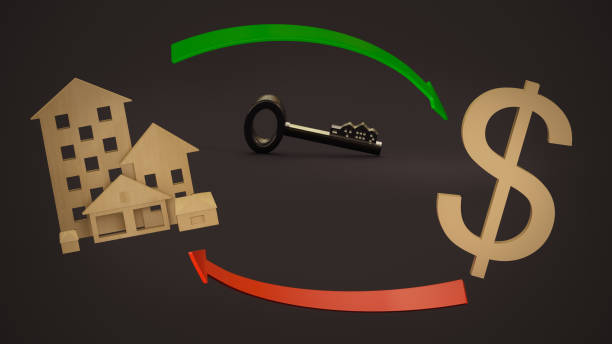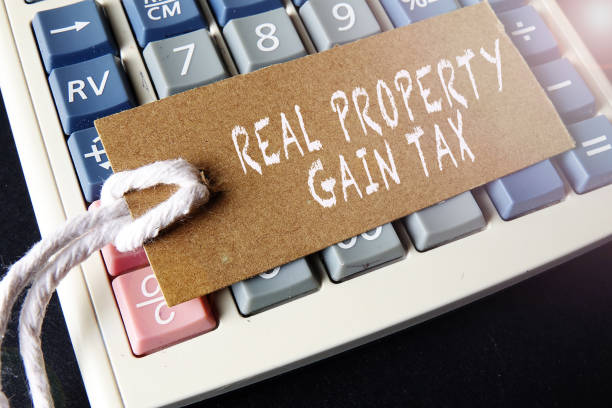How to Avoid Capital Gains Tax on Rental Property
Investing in rental property can be a lucrative way to generate passive income and build wealth over time. However, when it comes time to sell, one major financial concern for property owners is capital gains tax. If you’ve held a rental property that has appreciated significantly in value, you may owe a substantial amount in taxes upon selling it. Fortunately, there are several legal strategies you can use to reduce, defer, or even eliminate this tax burden.
Understanding how to avoid capital gains tax on rental property sale requires careful planning and the right approach. By leveraging tax deferral strategies, deductions, and exclusions, investors can protect their profits and reinvest them into new opportunities. Whether you’re looking to sell a single rental home or an entire portfolio, knowing the right tactics will help you navigate the process smoothly while keeping more of your hard-earned money. In this article, we’ll explore key strategies to minimize capital gains tax on rental property sales, ensuring you make the most of your real estate investments.
What Is Capital Gains Tax on Rental Property?
Capital gains tax is a levy imposed on the profit made from selling an asset, including real estate. When you sell a rental property for more than its original purchase price, the difference is considered a capital gain, which is subject to taxation. There are two types of capital gains:
-
Short-term capital gains: These apply if you sell a property within a year of acquiring it. These are taxed at your ordinary income tax rate, which can be significantly higher than long-term rates.
-
Long-term capital gains: If you hold a rental property for more than a year before selling, you’ll pay long-term capital gains tax, which ranges from 0% to 20%, depending on your income level. In some cases, an additional 3.8% Net Investment Income Tax (NIIT) may apply if your income exceeds a certain threshold.
Understanding how capital gains tax works is crucial for rental property investors looking to minimize their tax liabilities. Since real estate often appreciates over time, failing to account for potential taxes can significantly reduce your overall return on investment. This is why investors must explore available exemptions, deductions, and deferment options to avoid unnecessary tax payments.

How Do Capital Gains on Rental Property Work?
When selling a rental property, the IRS calculates your capital gains based on the following formula:
Capital Gains = Sale Price – (Purchase Price + Depreciation Recapture + Closing Costs + Improvements)
-
Purchase Price: The amount you originally paid for the property, which serves as the basis for calculating taxable gains.
-
Depreciation Recapture: If you claimed depreciation deductions while owning the property, those deductions are subject to recapture at a rate of up to 25%. This can increase your tax liability if not planned for properly.
-
Closing Costs: Fees related to the sale, such as real estate commissions, legal fees, and title transfer costs. These can be deducted from your gains to lower your taxable amount.
-
Improvements: Major renovations or upgrades that add value to the property. Keeping a record of all improvements can increase your cost basis and reduce your tax burden.
By understanding these factors, investors can proactively minimize their capital gains tax liability by keeping thorough records, accounting for depreciation recapture, and utilizing legal deductions to lower their taxable profit.
How to Avoid Capital Gains Taxes on Rental Property
If you’re wondering how to avoid capital gains tax on rental property sale, here are some proven strategies:
Utilize the 1031 Exchange
A 1031 exchange allows you to defer capital gains tax by reinvesting proceeds into another like-kind property. This powerful tool helps investors maintain capital appreciation without an immediate tax hit.
Convert Your Rental into a Primary Residence
Living in the property for at least two years can make you eligible for the primary residence exclusion, reducing taxable gains significantly.

Offset Gains with Rental Property Losses
If you have passive losses, you may be able to use them to reduce taxable gains, thereby minimizing tax payments.
Increase Your Cost Basis
Keep detailed records of home improvements to increase your cost basis, which reduces taxable gains. Consider documenting even minor renovations, as they add up over time.
Use Tax-Advantaged Accounts
Investing rental income in a self-directed IRA or solo 401(k) can provide tax benefits and shield profits from immediate taxation.
Sell During a Low-Income Year
If you expect a drop in income, timing your sale accordingly can help you fall into a lower tax bracket, reducing your capital gains tax rate.
Take Advantage of Opportunity Zones
Investing in Opportunity Zones allows you to defer and potentially reduce capital gains taxes by reinvesting in designated underdeveloped areas.

How to Defer Capital Gains Tax Using a 1031 Exchange
A 1031 exchange is a powerful tool for real estate investors looking to defer capital gains tax. This strategy involves selling one investment property and using the proceeds to purchase another “like-kind” property within a specific timeframe.
Key Requirements:
-
The replacement property must be of equal or greater value than the sold property.
-
The transaction must be completed within 180 days.
-
A qualified intermediary must handle the exchange to ensure compliance with IRS rules.
By rolling over profits into another investment property, you can defer paying taxes indefinitely as long as you continue reinvesting. This strategy is especially beneficial for long-term real estate investors aiming to grow their portfolios while minimizing tax burdens.
Is Converting a Rental Property into a Primary Residence a Good Strategy?
If you’ve owned a rental property for several years and want to avoid capital gains tax, converting it into your primary residence can be beneficial. The IRS allows homeowners to exclude up to $250,000 ($500,000 for married couples) in capital gains if they meet the following conditions:
-
You must live in the home for at least two of the last five years before selling.
-
The property must be your primary residence during that time.
This strategy can be highly effective, but it’s important to note that only a portion of the gain will qualify for exclusion if the property was previously rented out. Partial exclusions may still significantly reduce taxable gains, making this approach an attractive option for investors looking to cash out with minimal tax consequences.

Conclusion
Selling a rental property can trigger significant capital gains taxes, but there are several ways to reduce or defer them. Whether through a 1031 exchange, converting your rental into a primary residence, offsetting gains with losses, or increasing your cost basis, careful tax planning can help you retain more profits.
At Dwanderful, real estate investor and podcast host Dwan Bent-Twyford provides expert guidance to help investors make informed decisions. She offers a free book titled “Real Estate Lingo” and a paid book, “Five Pillars of Real Estate Investing,” to help you master the real estate market. Additionally, you can take a quick quiz (less than a minute) to discover how you could generate six figures in the next six months, whether you’re buying your first property or your next one! Contact us now!
Frequently Asked Questions
Do capital gains taxes apply if I inherit a rental property?
No, inherited properties receive a step-up in basis, meaning that the value is adjusted to the fair market value at the time of inheritance. This significantly reduces or eliminates capital gains tax when selling.
Can I offset capital gains tax with rental property losses?
Yes, capital losses from other investments or depreciation recapture can help offset gains. Additionally, passive activity losses may apply if your income qualifies.
What happens if I sell my rental property at a loss?
If you sell a rental property at a loss, you may be able to deduct the loss from your taxable income. This deduction can offset other gains, reducing your overall tax liability.
By using these strategies, you can successfully minimize or avoid capital gains tax on rental property sales and keep more of your hard-earned profits.



